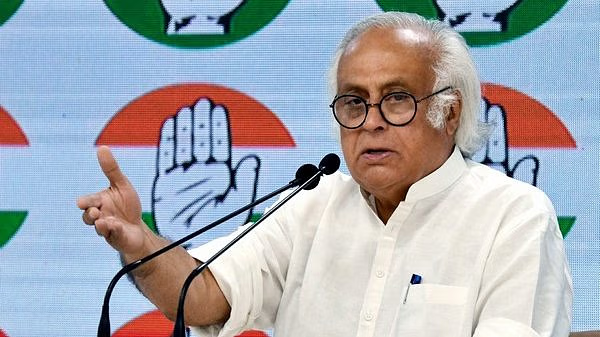While the BJP-led Narendra Modi government projects these investments as signs of global trust in India’s economy, the opposition warns of strategic vulnerabilities and loss of financial sovereignty.
NEW DELHI (India CSR): The Congress party has strongly criticised the increasing trend of foreign financial institutions acquiring Indian banks, calling it an “imprudent move” that poses “substantial risks” to the nation’s financial sovereignty.
The statement came from Congress general secretary (communications) Jairam Ramesh on Sunday, following reports that Emirates NBD Bank, the second-largest bank in the UAE, is set to acquire a 60% controlling stake in RBL Bank for Rs. 26,853 crore (USD 3 billion) — the largest-ever foreign direct investment (FDI) in India’s financial services sector. (Read full report: Emirates NBD to Acquire Majority Stake in RBL Bank in Historic $3 Billion (~Rs. 26,850 Cr) FDI Deal)
Congress Raises Alarm Over Foreign Acquisitions
In a detailed post on social media platform X, Jairam Ramesh wrote,
“Foreign firms are gradually being allowed to acquire Indian banks. These imprudent moves pose substantial risks.”
He highlighted that this latest deal is not an isolated incident but part of a worrying pattern of foreign control creeping into India’s financial system.
According to Ramesh, “First, Laxmi Vilas Bank was acquired by Singapore’s DBS Group. Then, Catholic Syrian Bank came under Canada’s Fairfax. Japan’s Sumitomo Mitsui Banking Corporation (SMBC) took over Yes Bank. Now comes the news that Dubai’s Emirates NBD is acquiring RBL Bank.”
Ramesh further warned that India’s first complete privatisation of a public sector bank, IDBI Bank, expected to conclude this financial year, will mark yet another turning point in India’s banking history.
***
Historical Context: A 1969 Throwback
Drawing a historical parallel, Ramesh reminded the public that the Jan Sangh, the ideological predecessor of today’s Bharatiya Janata Party (BJP), had once criticised former Prime Minister Indira Gandhi for not nationalising foreign banks in July 1969.
He shared an old news clipping dated December 28, 1969, from the Jan Sangh’s Patna meeting, which had called for the nationalisation of all large foreign firms operating in India.
“This is not just about banking; it’s about control, accountability, and long-term national interest,” Ramesh remarked, suggesting that the current government’s policies contradict even the economic positions once held by its political predecessors.
***
The Emirates NBD–RBL Deal: A Landmark Yet Controversial Transaction
The Emirates NBD–RBL Bank transaction, announced on October 18, marks a milestone in India’s banking history. The investment involves a preferential issue worth Rs. 26,853 crore, giving Emirates NBD a majority 60% ownership in RBL Bank, pending regulatory approvals from the Reserve Bank of India (RBI) and the Ministry of Finance.
The acquisition represents:
- The largest-ever FDI in India’s financial services sector.
- The biggest equity fundraise by a private Indian bank.
- The first majority takeover of a profitable Indian bank by a foreign entity.
RBL Bank, in its official statement, said:
“This landmark transaction represents a strong vote of confidence in the bank’s business model, governance standards, and growth potential.”
The board of RBL Bank approved the proposal while reviewing quarterly results, noting that the deal aligns with its capital augmentation strategy for expansion and digital transformation.
***
A Broader Pattern: Japan’s SMBC, Singapore’s DBS, and Canada’s Fairfax
The deal follows a similar announcement earlier this month, where Japan’s Sumitomo Mitsui Banking Corporation acquired a 24.9% stake in Yes Bank for Rs. 16,333 crore.
Earlier, Singapore’s DBS Bank had absorbed Laxmi Vilas Bank in 2020 after the RBI imposed a moratorium on the latter. Likewise, Fairfax Financial Holdings of Canada had increased its ownership in the Catholic Syrian Bank (CSB) in previous years.
These acquisitions, according to Congress, collectively mark a steady dilution of domestic control over India’s banking infrastructure.
***
Political and Economic Implications
The Congress party’s warning comes amid the government’s push to privatise public sector enterprises and attract foreign investment in banking and finance.
Experts say that while FDI brings capital and innovation, unchecked foreign control could influence credit patterns, monetary flows, and domestic lending priorities.
Critics argue that India’s financial institutions — once nationalised to protect national interest in 1969 — are now being gradually exposed to foreign dominance under the guise of liberalisation and globalisation.
(India CSR)






















